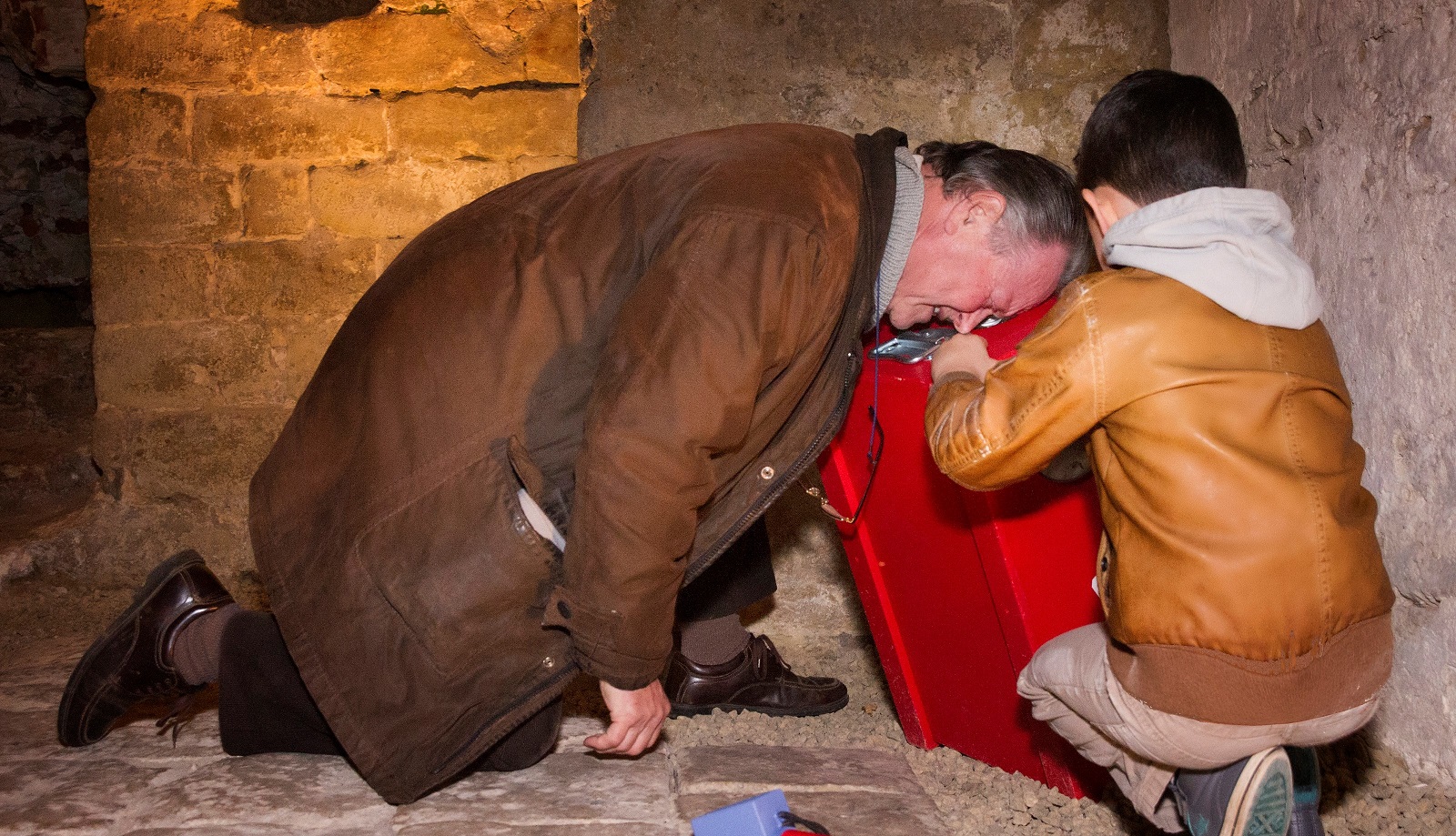- Daily & Weekly newsletters
- Buy & download The Bulletin
- Comment on our articles
Newly named Brussels Renaissance Festival plunges visitors into centuries past
Don’t say Carolus V, say Brussels Renaissance Festival. The summer festival inspired by Charles V’s presence in what is now the capital of Europe has changed its name.
The festival offers several weeks of events that submerge visitors into the sights, sounds and activities of the 15th and 16th centuries. The highlight has always been the Ommegang, a procession of 1,400 costumed performers who then re-enact the pageant that took place on the Grand Place in 1549 when Charles V entered the city.
With the crowds involved in Ommegang, it was decided that it will not take place this year. But other, smaller activities are still going ahead to introduce locals to Renaissance Brussels. Two family oriented events are being held at the Coudenberg Palace, the very core of this period of history in the capital.
“The Coudenberg Palace was on the Mont des Arts, and it was always associated with power,” says Frédérique Honoré, director of the institution. “Kings and rulers of Brussels and the surrounding territory lived in that palace, one after another. The peak of its fame was in the Renaissance period.”
Artistocractic epicentre
Originally built in the 12th century by the Dukes of Brabant, it took on greater and greater importance over the centuries as Brussels became more of a key political city. It not only housed the aristocracy, it welcomed royal guests from around Europe. It was famed as much for its parties as for its seat as a centre of sovereign control.
The palace’s magnificent Aula Magna – a state banquet hall – was built by Philip the Good in the 15th century during the reign of the Duchy of Burgundy. Later, Charles V became associated with the Coudenberg as he carried out major expansions, including a Gothic chapel.
In 1731, a fire destroyed half the palace, and it was left abandoned, finally being demolished some 40 years later. Now all that’s left of the Coudenberg are the underground passageways and cellars, which make for a fascinating peek into Renaissance times. “You can see remains of the chapel and the Aula Magna,” says Honoré.
Coudenberg has always been invested in family activities that introduce all generations to this period of history and heritage. During the Brussels Renaissance Festival, there is a murder mystery game as well as the Waouw Weekend.

Kids and adults will both have fun discovering treasure during the Waouw Weekend
The murder mystery is hugely entertaining but, cautions Honoré, is best for kids over 12. “Teenagers and adults have great fun with it,” she says. “It’s like a live game of Clue in the cellars of the Coudenberg Palace. You have to look for clues and question the ghosts roaming the cellars – if you dare.”
The game is based on real people who lived 500 years ago. “So you have to solve a cold case that happened then. It quite original to organise this kind of murder mystery game in such a heritage site with such a historical story.”
Littler kids, meanwhile, will enjoy the Waouw Weekend, where they too have to answer questions to open treasure chests. “Each chest is an activity to discover a piece of the history of the site or about the archaeology or the relics discovered by the archaeologists,” explains Honoré. “So each chest is a game, but also a way of learning something. It’s a fun way to discover the history and heritage of the Coudenberg Palace.”
Both the activities are offered in English, French and Dutch. And sometimes in Spanish. “We do our best to welcome foreigners and expat visitor so they can learn about the Coudenberg,” says Honoré. “Because it’s also a piece of European history.”
Another event taking place as part of the Brussels Renaissance Festival are guided tours, also in multiple languages. Find out all about Brussels Town Hall – from the laying of the first stone to the fire of 1695 – the Spanish influence on marriage, art and trade, or, say, the work of doctors and charlatans in the middle ages.
Visitors can really get into the spirit of things at the Renaissance Weekend at the Maison du Roi, where costumed staff recount tales of Charles V and Brussels’ past fortifications. There is also access to the museum, where you can listen to live Renaissance music, recreate sculptures and dress up in period garb yourself. It will be just like Game of Thrones.
Brussels Renaissance Festival, 19 June to 11 July, across Brussels
Photos, from top: ©M Vanhulst/Visit Brussels, ©Véronique Evrard/Coudenberg Palace



















